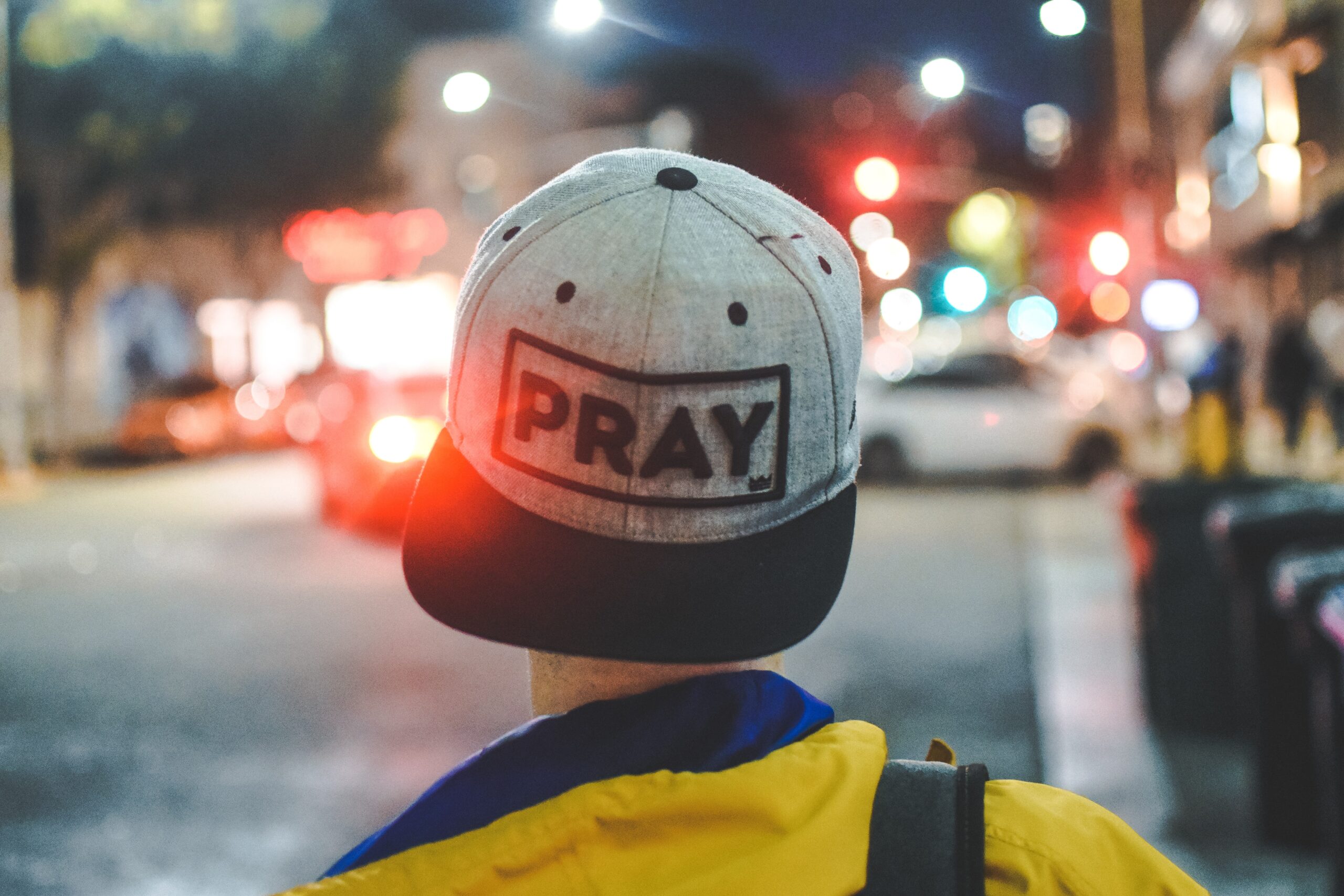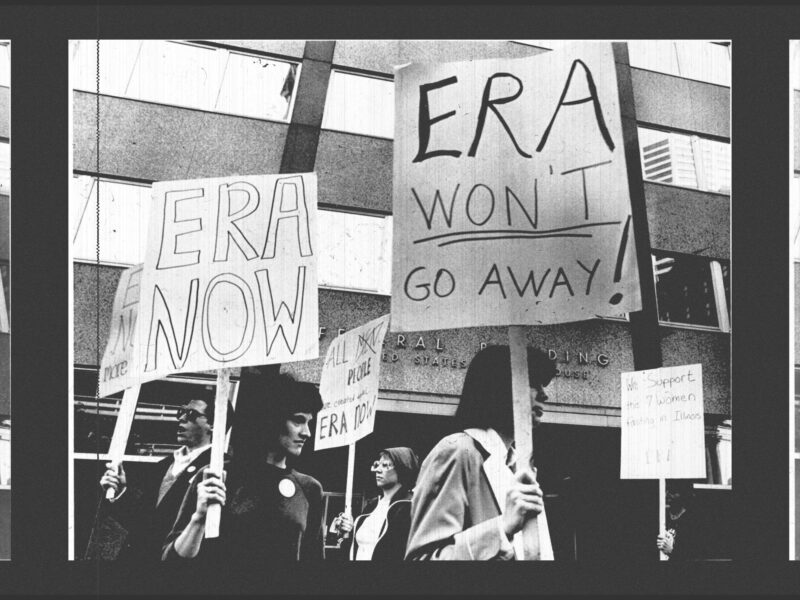Legacy media outlets do their readers a vast disservice in presenting the minority of anti-Trump evangelicals as evidence of a broader change in attitudes.
The Trump era in American politics, which I sincerely hope comes to an end in 2021, will be forever marked by widespread public consternation over the often enthusiastic support of the Christian Right, and white evangelicals above all, for a corrupt, “pussy-grabbing,” tenth-rate would-be dictator. Over the past four years I have been trying to explain why evangelical Trump support is not only unsurprising, but also the logical culmination of the evangelical culture wars I was born into and mobilized for.
Unfortunately, legacy media outlets in the United States continue to resist this hard truth. With less than one week left before the November 3 election, they are amplifying the small minority of white evangelicals that support former Vice President Joe Biden, instead of explaining why the vast majority of white evangelicals will never dump Trump. They are also irresponsibly pushing the tired old trope that young evangelicals are changing evangelicalism for the better, in ways that will materialize any day now. Apparently we just have to keep waiting, much like Christians have been waiting for the Second Coming for the last 2,000 years.
Why do legacy media outlets continue to amplify the small liberal minority among white evangelical Christians? Daniel Schultz, a United Church of Christ pastor and veteran civic activist, observed that they “make a good story: you’ve got white evangelicals going against the grain, so it’s unusual, and you have people standing up for their morals (or at least pretending to do so), so it’s inspirational.” However, he said, journalists need to ask whether the atypical evangelical individuals and initiatives they’re highlighting represent “meaningful change.”
Of course, the outliers do deserve some media coverage. One example is Not Our Faith Political Action Committee, a bipartisan PAC devoted to helping defeat Trump. But reporters glosses over the salient point that this organization’s advisory council, though composed of Protestants and Catholics, is ethnically far more diverse than the white evangelicals and white Catholics who voted for Trump in 2016. Pro-Life Evangelicals for Biden, which is is prominently supported by Billy Graham’s granddaughter Jerushah Duford, likewise deserves coverage—but responsible reporting should include some healthy skepticism of Duford’s optimism about evangelicals’ ability to change for the better, given the documented resiliency of authoritarianism in conservative, mostly white evangelical subculture.
The handful of white evangelicals who oppose Trump are notably more visible, and seemingly more organized, on behalf of a Democratic presidential candidate, than any similar group has been in recent memory. And there is a non-zero chance that their efforts might actually shift a few votes in swing states, which could in turn make the difference in what will most likely be a tight contest in the Electoral College even if there is a popular vote landslide for Biden, which is likely. All of this, of course, assumes a free and fair election that plays out relatively smoothly, which is certainly not a given.
Eighty percent of the white evangelical vote went to Trump in 2016, a historic high. Trump’s share of that vote could fall back into the 70s, though this seems unlikely given the GOP’s hypocritical rush to fill Ruth Bader Ginsburg’s Supreme Court seat with charismatic Catholic extremist Amy Coney Barrett; her confirmation places the overturning of the Supreme Court’s Roe and Obergefell decisions within the Christian Right’s grasp if the composition of the court remains untouched. A Biden administration could expand the SCOTUS to restore fairness, and, while I believe it should do so, you can be sure Trump’s evangelical base will keep this possibility in mind as something to avoid by voting for Trump.
Jerushah Duford’s first name is derived from the Hebrew word for “inheritance,” but it is the notoriously bigoted and rabidly pro-Trump Franklin Graham, son of Billy, who far more embodies not only the legacy of “American’s pastor,” but also white evangelical subculture. America’s elite public sphere places far too little emphasis on that sobering fact.
If we are ever to have a proper reckoning with this moment, which is far from guaranteed even if Biden wins the 2020 presidential election handily, we will need to face not only the fact that white evangelical subculture is essentially authoritarian, but also the role of the media in obscuring that truth, and by extension enabling authoritarianism via the normalization of extremism. Major media outlets need much better religion reporting; unfortunately, however, the organizations willing to fund religion journalism, like the Lilly Endowment in my native Indianapolis, tend to be heavily biased in favor of conservative Christians.
The relatively small number of journalists who cover religion do their readers a great disservice by taking the word of the people they report on at face value, when they should be questioning them with some skepticism. Conservative Christians maintain they are misunderstood; in response, reporters seem to be striving to tell only positive stories about them, no matter how harmful the politics of those Christians might be to those who do not share their views.
It is wildly irresponsible to equate “good” religion journalism with highlighting moderate to liberal evangelical youth as if they are typical, as in this example from The New York Times, and/or parroting the aggrieved talking points of their authoritarian counterparts as if they represent “the gospel truth,” or at least something worthy of the public’s sympathy, as in this example from The Washington Post.
Or take this combative, aggressively defensive opinion piece in defense of white evangelicals published by Religion News Service in the final run-up to this year’s election. Titled “Demonizing White Evangelicals Won’t Solve Our Political Divisions,” it is another iteration of the “very fine people on both sides” argument. The writer, Arthur E. Farnsley II, posits that both liberal and conservative Americans are responsible for the divisions in our society, when it is well established that the country’s polarization is asymmetric and driven primarily from the right.
Farnsley writes that critics of right-wing evangelicals must build bridges, but provides no evidence that anyone has engaged in “demonizing” white evangelicals, let alone elite journalists and commentators. That is, unless his definition of “demonizing” is presenting the public with highly substantiated facts about the intimate connections between American white supremacism and predominantly white churches, and daring to suggest that the people who lead and attend the churches most complicit in white supremacism should be held accountable.
In a powerful response to Farnsley’s commentary in his Substack newsletter, ex-evangelical podcaster Blake Chastain, who is a friend of mine, pointed out that “it is white evangelicals who hold the flame and set fire to bridges, both in their churches and in the public square.”
We must not be taken in by Farnsley’s gaslighting, nor by right-wing extremism wrapped in “civil” trappings by “respectable” evangelicals who understand the damage that Trump support has done to their brand, and thus seek to distance evangelicalism from Trump.
The latest example of the latter comes from heavyweight Calvinist theologian John Piper’s blog, Desiring God. In a post that made waves on Twitter when it dropped on October 22, Piper strongly hinted that he will be abstaining from voting for president this year, characterizing the two choices as “death by abortion” (Biden) and “death by arrogance” (Trump). But there is simply no way to build a bridge between advocates of democracy and human rights, on the one hand, and people like Piper who casually make false and conspiratorial statements like, “I think Planned Parenthood is a code name for baby-killing,” on the other.
How does America move forward from the Christian nationalist surge of the Trump years? Those committed to liberal democracy can and should look to build bridges with conservative Christians like Duford, who has shown a willingness to break ranks with evangelical authoritarianism and to operate in good faith in a pluralistic democracy. However, if we look away from what conservative, mostly white evangelical subculture definitively is— i.e., anti-pluralist, anti-democratic, and incapable of significant cultural change from the inside—we cannot move the country forward. Those characteristics represent unreconstructed America, and those who exhibit them must be pushed to the political sidelines or the United States will always be at risk of the unreconstructed minority imposing authoritarian, white supremacist patriarchal rule.
As sociologist of religion Andrew Whitehead, who studies evangelicals, recently observed, “there is so much inertia institutionally that it will take an extremely long time for white evangelicalism to change, and I have a hard time seeing that happen. It will be so interesting to see if younger evangelicals just leave or conform. My suspicion is those who truly embrace environmentalism or LGBTQ-affirmation, for example, will end up leaving.” And indeed, many are leaving.
True, 16 percent of the white evangelical vote went to Hillary Clinton in 2016. As Schultz explains, “About 15-25 percent of white evangelicals are liberals or at least moderates. So there’s always someone to go against the majority, creating the necessary drama for a media piece.” Nevertheless, he stressed that “the numbers don’t lie: somewhere around 80 percent of white evangelicals support Trump, and that’s in line with white evangelical support for GOP presidential candidates going back to at least 2004. In other words, white evangelicals are the Republican base, and there’s simply no reason to think that’s changing in this election.”



